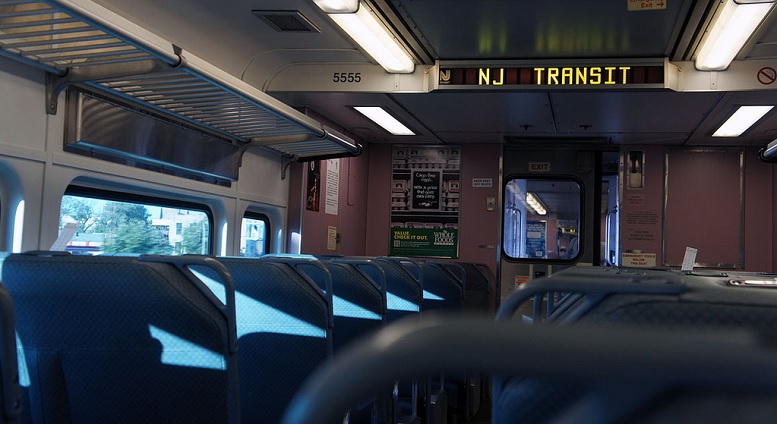It’s no secret that New Jersey Transit has issues. But what are state leaders doing it address those issues? And, considering Governor Chris Christie is on his way out the door, what kind of expectations should we be setting for the next administration?
Senators Bob Gordon and Loretta Weinberg, who serve as chair and vice chair of the New Jersey Senate’s Legislative Oversight Committee, have joined forces with Assemblyman John McKeon and Assemblyman Gordon Johnson (chair and vice chair of the Assembly Judiciary Committee) to hold special hearings over the past year aimed at exploring the state transit agency’s woes. To date, topics have covered capital programming, safety, budgeting, personnel issues and more:
- October 21, 2016: Testimony from invited guests, including NJ Transit Executive Director Steven Santoro and other regional rail transportation officials and advocates, on NJ Transit management, operations, funding and safety issues, status of the installation of Positive Train Control technology.
- November 4, 2016 Testimony from Santoro on agency management, operations, funding and safety issues.
- December 6, 2016 Testimony from federal and regional transportation agencies on rail safety issues, and from transportation experts and other invited guests on NJ Transit management, operations, funding and safety issues.
- February 23, 2017 Testimony from members of the public focused on the fatal train collision at Hoboken Terminal in September 2016 as well as overall safety, maintenance and reliability.
- April 28, 2017 Testimony from Amtrak and NJ Transit officials on recent train derailments and breakdowns and the subsequent delays and overcrowding; safety and maintenance on the Northeast Corridor Line; and the Gateway Project.
- August 25, 2017 Testimony from Santoro and other invited guests on various issues concerning the agency, including personnel practices.
The testimony presented at these special hearings portrays an agency crying out for reform. NJ Transit is plagued by
- leadership issues, specifically the turnover in senior leadership
- service issues, in addition to the major derailments at Penn Station leading the Summer-of-what-turned-out-to-be-not-so-much-Hell
- repeated safety violations, giving NJ Transit the distinction of having significantly higher accident rates than the rest of the nation’s 10 largest commuter railroads between 2011-2016
- financial stress due to an underfunded operating budget that relies too heavily on passenger revenue and cannibalistic funding practices, and which led to the abrupt resignation of long-time Vice Chair Bruce Meisel in December 2016, and
- personnel issues.
2017 has been a rough year for NJ Transit and the people who rely on it. So where do we go from here?
In TSTC’s December 6 testimony, we presented on how, compared to other transit agencies, NJ Transit is an outcast in terms of its revenue sources and financial practices. While researching other similarly-sized agencies, one stood out which might be looked upon to help guide NJ Transit reform: the Massachusetts Bay Transit Authority (MBTA).
On February 20, 2015, Massachusetts Governor Charlie Barker announced the creation of a panel comprised of national leaders in transportation, economic development and municipal planning tasked with conducting “an in-depth diagnostic review of the MBTA’s core functions.” After meeting 18 times over a six-week period, the panel presented its findings. What they found was “pervasive structural failure” within the agency, which led to severe financial distress, lack of a viable maintenance and repair plan, lack of a culture of performance management and accountability, and ineffective governance (sound familiar?). Their report didn’t stop there. In addition to identifying the MBTA’s problems, it also made recommendations on how to fix them.
A similar panel and report is desperately needed in New Jersey. And the next administration would be in a strong position to create such a panel via executive order.
In the meantime, a bill to add commuter voices to the NJ Transit Board of Directors remains only one step away — it still needs a vote in the Assembly — from landing on the governor’s desk. S59, sponsored by Senator Ray Lesniak, and A1919, sponsored by Assemblyman John Wisniewski would add two public members, one regular bus rider and one regular rail rider, to the NJ Transit Board as voting members. The board* is largely comprised of government officials who are not transportation experts. Including Governor Christie, four of the board’s eight seats are occupied by members of the state’s executive branch, three are members of the public, and one is a non-voting union representative. So far in Fiscal Year 2018, only six board members have attended the two board meetings. In FY2017, not one board meeting had a full board of eight in attendance.
The MBTA has 11 board members with a variety of backgrounds including law, transportation and transit planning, finance, law enforcement, economic development and engineering.
* Note that the current composition of the NJ Transit Board is not up to date.


Horrible